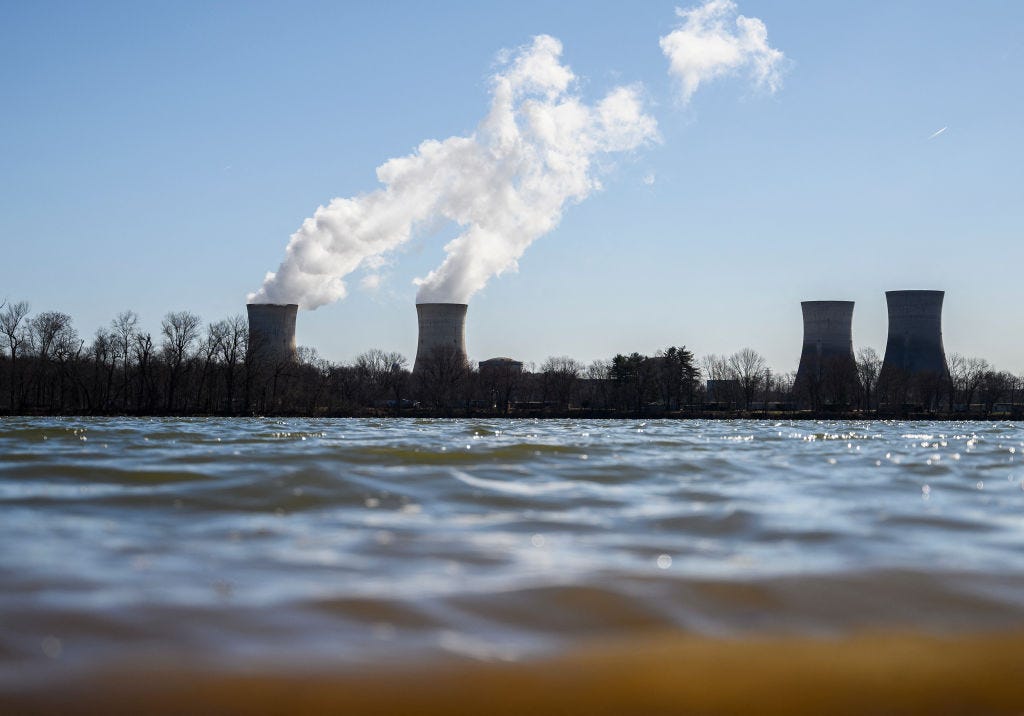Bridge Burning
How AI will disrupt the global natural gas trade.
“Everywhere is within walking distance if you have the time.” – Steven Wright
What are utilities like electricity and water worth? Certainly, much more than the average consumer pays for them. For reasons of social cohesion and economic fairness, governments subsidize virtually all aspects of the production and transmission of both, and their smooth operation is considered table stakes for a properly functioning modern society. Taxpayers are billed a token amount that scales with the quantity they consume, making it easy to confuse list price with value. It is only during shortages that this mirage collapses.
Incentivized by this quiet discount, private actors often consume more than they would in a free market, which is why Colorado River allocations are forever politically sensitive and the biggest aquifers in the US are being pumped dry. And now, the sudden boom in energy-intensive artificial intelligence (AI) is creating a scenario in many countries, especially in the US, where the hunt for high-quality power is forcing companies to look for solutions beyond the existing quasi-public infrastructure:
“Microsoft Corp. is going to pay a hefty premium for power from the soon-to-be-restarted Three Mile Island nuclear plant, a recognition that carbon-free electricity is more valuable when it’s available around the clock.
The company will pay owner Constellation Energy Corp. at least $100 a megawatt-hour for power from the Pennsylvania plant, according to estimates from Bloomberg Intelligence, while Jefferies LLC puts the figure at about $112. That compares to about $60 a megawatt-hour for wind and solar energy available now in the same region, according to Jefferies.”
Comparing the price of baseload nuclear power to that of intermittent renewable electricity is akin to comparing bananas to potato chips—both are considered food, but their caloric values are anything but equal. In substance, the Three Mile Island deal is consistent with our understanding of how AI will impact the economy, as reported in “Fission Chips” nearly a year ago:
“A useful way to model the economy is to assume society will do whatever it takes to stay on the Kurzweilian path of exponentially increasing computing power, regardless of the financial or energetic barriers that manifest…
The advance of AI, for better or worse, may be the force that finally lifts nuclear from the fallacy of its bad reputation in the US. Kurzweil’s vision requires vastly more nuclear power to be realized, and betting against The Singularity has been a losing trade for decades.”
Although we correctly predicted that AI would ultimately bring nuclear power back into acceptance, there is a significant timing mismatch between the speed with which nuclear plants can be brought online for AI and the urgency of the industry’s electricity demand.
Enter the worldwide glut of natural gas.
Regular readers of Doomberg will recall that the co-production of oil and natural gas in the US is creating an abundance of the latter. This phenomenon is made more acute by actions on the part of the Organization of the Petroleum Exporting Countries (OPEC) to artificially keep oil prices elevated. In April we wrote “Generational Arbitrage,” framing the dynamic as follows:
“On an equivalent energy content basis, the price of a barrel of oil should be roughly six times that of a million BTUs of natural gas. Accounting for the complexity of handling natural gas, oil has historically oscillated between 10-20 times natural gas. As of the time of this writing, it stands at 45...
Things that do the same thing don’t sell for different prices indefinitely, and hydrocarbons will be no exception. Either by changing the engines or manipulating the molecules or a combination of both, arbitrage will prevail.”
The oil-to-gas arbitrage has since closed markedly:
We pull on these ideas today to speculate whether the AI boom and the Kurzweilian instinct might conspire to make natural gas even more valuable than oil, flipping the ratio from the historic highs seen earlier this year to unprecedented lows, perhaps even below the energy equilibrium value of six. As the cleanest-burning hydrocarbon capable of producing a steady supply of baseload electricity, natural gas is inherently well-suited to meet the application’s needs. If Microsoft is willing to “overpay” for nuclear, surely natural gas, which can be rapidly deployed to create electricity at scale, is substantially more valuable than current prices indicate? Let’s explore the possibilities.



